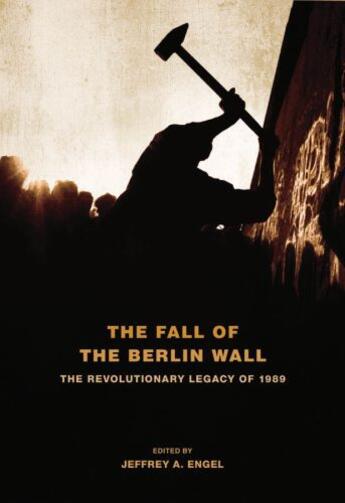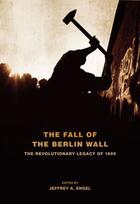-
Nombre de pages : (-)
-
Collection :
(-)
-
Genre :
(-)
-
Thème :
Non attribué
-
Prix littéraire(s) :
(-)
Résumé:
The fall of the Berlin Wall sent shock waves around the world. It was, quite literally, a world-changing event. Now, more than two decades after the Wall's collapse, this book brings together leading authorities who offer a fresh look at how leaders in four vital centers of world politics--the... Voir plus
The fall of the Berlin Wall sent shock waves around the world. It was, quite literally, a world-changing event. Now, more than two decades after the Wall's collapse, this book brings together leading authorities who offer a fresh look at how leaders in four vital centers of world politics--the United States, the Soviet Union, Europe, and China--viewed the world in the aftermath of this momentous event. Jeffrey Engel contributes a chronological narrative of this tumultuous period, followed by substantive essays by Melvyn Leffler on the United States, Chen Jian on China, James Sheehan on Germany and Europe, and William Taubman and Svetlana Savranskaya on the Soviet Union. These historians reinterpret the meaning of 1989 in the context of global history in the late 20th and early 21st century and explore such questions as why communism failed in Europe, why China took a different route following the turmoil of Tiananmen Square, and why the peace of 1989 might well prove illusory.
Donner votre avis















